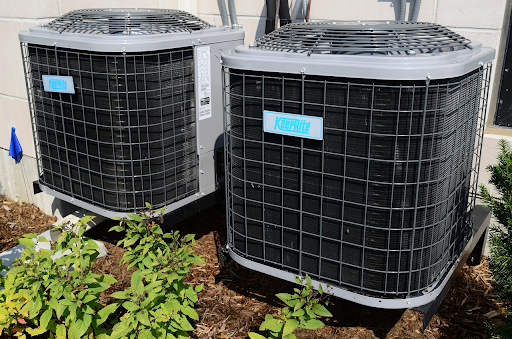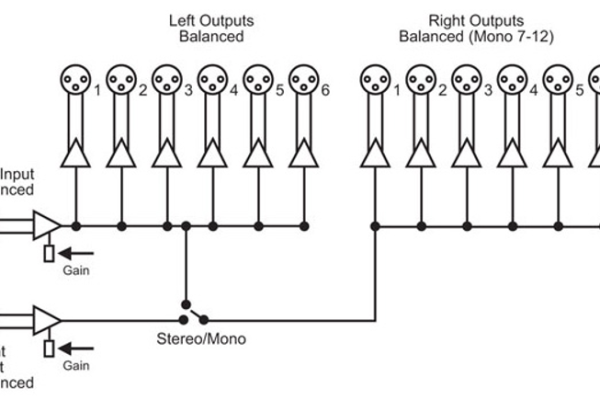The Heating, Ventilation, and Air Conditioning (HVAC) industry has experienced substantial growth and evolution over the years. As homes and businesses globally prioritize comfort and air quality, the demand for advanced HVAC solutions has soared, solidifying the sector’s importance in the broader economy. Alongside its growth, like any other industry, business owners often face the question of when to sell their venture. Timing, as they say in real estate and stock markets, is everything—even more so in business sales. Making the decision to sell at an optimal time can be the difference between a profitable exit and a missed opportunity.
This article examines the right moment to sell your HVAC business. Beyond understanding industry trends and the natural life cycle of a business, several indicators might suggest that it’s time to move on. Whether driven by market factors, personal reasons, or changing economic forecasts, understanding these signs can be invaluable. Read on to explore when it might be time to close one chapter and perhaps begin another, ensuring you maximize the value and efforts you’ve poured into your enterprise.
Understanding the Life Cycle of an HVAC Business
Every HVAC business undergoes a series of phases throughout its existence. Beginning with the Startup Phase, there’s a palpable sense of energy and enthusiasm. Business owners invest time, resources, and heart into their ventures, but profitability often remains elusive as they grapple with setup costs and initial market penetration.
As they push through, they enter the Growth Phase—characterized by an expanding customer base and an uptick in revenue. It’s during this phase that the business starts to gain traction and build a reputation.
With continued dedication and effective strategies, the business reaches the Maturity Phase. Here, the revenue plateaus, becoming more predictable, and relationships with customers are deeply established. However, no business can maintain its peak indefinitely.
The Decline Phase signals a period where profitability begins to shrink, often due to increasing competition, market saturation, or changing consumer preferences. Recognizing and navigating these phases with your HVAC business consultant can be instrumental for business owners in determining strategic moves, including the decision to sell.
Indicators It’s Time to Sell Your HVAC Business
Declining Passion
As the initial thrill of the business fades, and day-to-day operations become more of a chore than a passion, you need to take a moment to reflect on whether you’re still the right person to lead the business.
Market Saturation
A crowded marketplace with increasing competitors can lead to a diminishing market share. If expansion becomes notably challenging, it might be time to reconsider your position.
Personal Reasons
Life events and personal choices, such as approaching retirement, health challenges, or a shift in lifestyle priorities, can significantly dictate the course of your business decisions.
Shrinking Profit Margins
A business’s health can be gauged by its profitability. If operational costs keep rising without a corresponding increase in revenue, it’s a clear indicator that the business model may need reevaluation or a change in direction.
Major Industry Changes
The introduction of disruptive technologies or evolving regulations can unsettle an established business model. If adapting seems overwhelming or not viable, selling the business might be the next logical step.
Economic & Market Factors Influencing the Sale of Your HVAC Business
Upcoming Recession
Historical trends have consistently demonstrated the wisdom of selling before a market downturn to maximize profit and avoid the challenges of maintaining a business during economic hardships.
Industry Consolidation
Dominant players in the HVAC sector actively seek to acquire smaller businesses, either to eliminate competition or to integrate unique offerings into their portfolio. This can present lucrative opportunities for small to medium-sized business owners.
High Buyer Demand
When the market teems with eager buyers, it often leads to competitive bidding, ensuring that business owners get the best possible price for their venture.
Preparing Your Business for Sale: Key Steps for Optimizing Value
Streamlining Operations
A streamlined operation not only boosts the company’s value but also appeals to potential buyers looking for a hassle-free transition.
Solidifying Client Contracts
A business with guaranteed and recurring revenue is more enticing to potential investors. By solidifying and possibly extending client contracts, you present a stable revenue stream, making your business a more attractive acquisition.
Updating Equipment & Technology
Ensuring that all tools, machinery, and software are current makes your business more competitive and attractive, signaling to potential buyers that the business is forward-thinking and ready for the future.
Clean Financials
Having clear financial records, free of discrepancies, instills confidence in potential buyers. It showcases the company’s robust financial health and reduces any uncertainties or potential disputes during the sale process.
Exit Strategy Options: Charting the Path Forward for Your HVAC Business
Full Sale
Often the most straightforward approach, this involves selling the entire business and transferring all ownership rights to the buyer. This option is ideal for those looking for a clean break to perhaps start a new venture or retire.
Partial Sale
This option allows business owners to liquidate a part of their business, retaining some stake and often some influence. It’s suitable for those who wish to reduce their operational responsibilities but still want to benefit from the business’s future growth.
Merger or Acquisition
Rather than selling outright, businesses can also opt to join forces with another entity. This strategy can expand market reach, combine resources, or achieve other synergistic benefits, ensuring a stronger combined entity.
Family Succession
For those who have built their HVAC business as a legacy, passing it down to the next generation can be the chosen path. This ensures continuity and keeps the business within the family, preserving the founder’s values and vision.
From recognizing the life cycle stages to evaluating market conditions and preparing for a sale, every decision plays a role in maximizing returns and ensuring a smooth transition. As you consider your next steps, remember that timely action, informed choices, and seeking expert guidance can make all the difference in securing a prosperous future.





